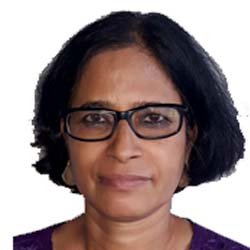Columns
More like a shot in the arm
The assassination attempt on Imran Khan is likely to make his political fortunes soar.
Smruti S Pattanaik
The November 4 assassination attempt on former Pakistani prime minister Imran Khan points to the fractious politics in a deeply divided country. Ever since he was ousted from power after failing to win a no-confidence motion, his Pakistan Tehreek-e-Insaf (PTI) party has been taking to the streets. Khan accused the United States of being behind his ouster since he tried to pursue an independent foreign policy and visited Moscow when Russia invaded Ukraine. In April, when he was voted out of power, his regime was unpopular and had been accused of corruption. Prices of essentials soared, the Pakistani rupee dipped against the dollar, and the country faced a balance of payments crisis. Yet in October, he had risen like a phoenix to challenge the government.
Khan’s rise and fall is attributed to Pakistan's powerful military. The PTI’s rise in the 2018 parliamentary election was dramatic. He was co-opted by the military after the tumultuous tenures of the previous two regimes headed by the Pakistan People’s Party and the Pakistan Muslim League which had rough innings with the military after Pakistan returned to democracy in 2008. Khan endeared himself as an alternative to the two parties. And not surprisingly, he won a simple majority with, many believe, a little help from the army.
Differences with the army
Khan, who had declared that his government and the army were on the same page on policy matters, started having differences with the army chief Lt Gen Qamar Javed Bajwa. The differences came out in the open on the issue of appointment of the Inter-Services Intelligence chief. While the army preferred Lt Gen Nadeem Anjum, Khan’s favourite was Lt Gen Faiz Hameed, whom he had sent to Afghanistan after the Taliban took over Kabul. When Khan delayed signing Anjum’s appointment for three weeks, the army felt that he was trying to win over some of the officers and have his own people in important positions before the election. For the first time, the army cadre were divided in their support for Khan. In June it was reported that the Pakistan Army had withdrawn pensions and other medical benefits to five retired officers for spreading propaganda against the institution at a press conference organised by army "veterans".
The first Azadi march called by Khan soon after his ouster was a political wash-out. However, buoyed by electoral victories in the by-elections, Khan was in strong form when he gave the call for a second Azadi march from Lahore to Islamabad on October 29, after the Election Commission disqualified him from contesting elections in the future. This march was his show of strength and a political warning to what he referred to as the "imported" government of Shahbaz Sharif. Often referring to the military as "neutrals" (after the army’s own description of its role in the political slugfest between the PTI and the joint opposition in March), Khan urged it to play a role, warning "history will blame them" for not reforming its policies and taking corrective measures in the interest of the country.
The PTI is in power in three provinces including the powerful Punjab. What has helped Khan’s political comeback is the public’s short memory of his misgovernance. He has been able to bounce back politically, and his rallies have drawn huge numbers of people. The nervousness in the army camp became visible, when for the first time, the powerful Inter-Services Intelligence chief Lt Gen Anjum, accompanied by Lt Gen Babar Iftikhar, the director general of the Inter-Services Public Relations, held a press conference on October 28 to deny charges made by Khan. Quite interestingly, the army accused Khan of making a lucrative offer to the army chief to act "illegally and unconstitutionally" in return for a three-year extension.
The battle of political wits is on full display as Lt Gen Bajwa is going to retire this November. Speculations are rife that he may get another term as Parliament has revised the army chief's retirement age to a maximum of 64 years or at least till the next elections. What is at stake this time is the army’s institutional interest which would not like to see the return of the mercurial Khan in the next election. Since Bajwa’s succession would be crucial for the election, Khan had proposed that he and Shahbaz Sharif make a list of three names each, and the name that appears on both lists should be appointed as Chief of Army Staff, but the offer was rejected by Sharif’s government. Every political party thinks that it can win the election by having the army chief on its side.
Popular support
Never in history has the Pakistan Army been maligned and so openly at public rallies as is happening now. Khan knows that he has popular support, and that it will be difficult for the government to place roadblocks against his return. Khan, in spite of his criticism of the army, wants to enlist its support in his fight against the Pakistan Muslim League-led government. But his fervent criticism and impulsive politics will not allow any rapprochement between him and the powerful military. Moreover, Prime Minister Sharif is an old favourite of the establishment.
For the army to remain relevant in Pakistan politics, it requires an ally with an entwined interest. The assassination attempt on Khan, who was shot in the leg, has become like a shot in the arm which is likely to make his political fortunes soar. November will be a crucial month for Pakistan politics. A new army chief or an extension of the current chief Bajwa's term will determine the contours of future politics and the political fortunes of both Khan and Sharif.




 8.75°C Kathmandu
8.75°C Kathmandu















